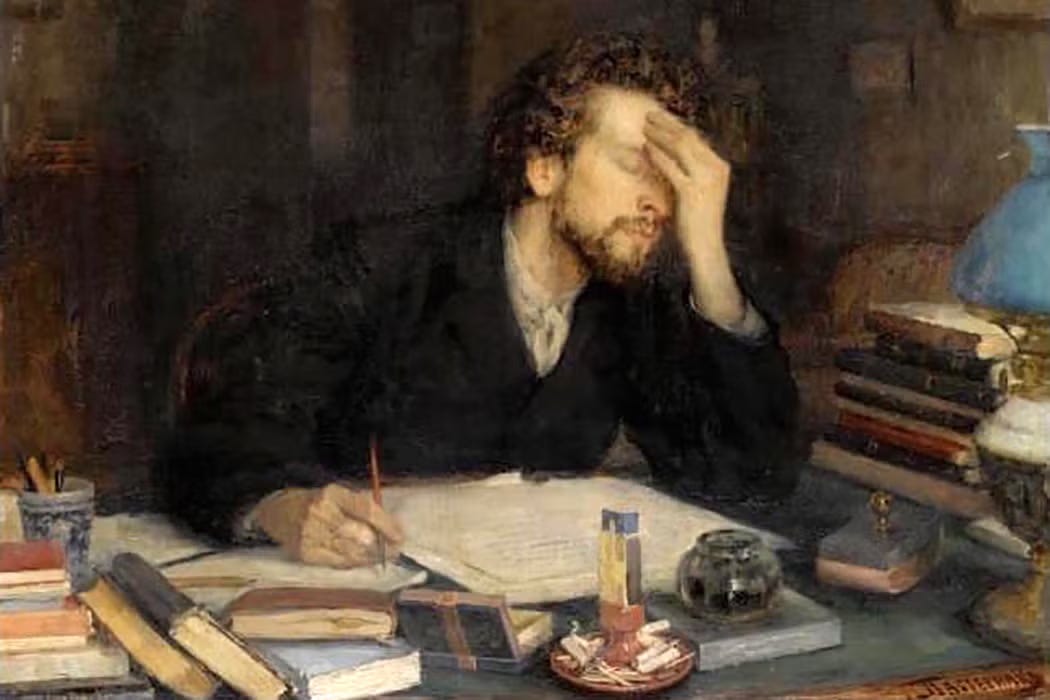If You Want to Write Beautifully, Read Ugly Books First
We love to swoon over beautiful prose, right? The kind that makes you stop mid-sentence and whisper damn, you re-read it and just can’t get over the perfection of its composition. We quote Hemingway and Donna Tartt like a full-time job.
Writing books, we usually expect each word to rhyme with the other. Every word humming in perfection like a choir. Other times, the precision and flow feels like a distant dream that makes you question your writing and sometimes makes you never want to write again.
But truth be told, beautiful writing doesn’t come from reading only beautiful books.
If you want to write beautifully, you need to read the ugly stuff too. Books with bloated metaphors and paper-thin characters still have something important to teach writers like us: what not to do, and why not to do it.
Ugly writing often teaches you how to write—sometimes more clearly than the beautiful ones ever will.
The term “ugly writing” isn’t about mocking bad writing. It doesn’t make it worthless or worthy of eye rolls. In fact, such books hit the bestseller lists or become the most talked about titles.
An ugly book is one that does the opposite of what it needs to do. The plot may be predictable from the first few chapters or even the back blurb, the characters may be too flat to develop an arc, the climax may be rushed, or the pacing may simply be off. It is like a book that wants to say something but hasn’t quite figured out how.
But if so many things are wrong with the writing and story itself, then why do I even need to read it in the first place?
The reward?
If you’re reading attentively, there’s a treasure trove of lessons hidden in what might seem like ‘’bad’’ writing. It's not about reading something polished to perfection but about noticing what’s missing or what went wrong and where? While you’re reading, you can identify flaws that, when avoided or worked upon, can significantly improve your own craft.
You need to learn that not every sentence needs to sparkle. Some just need to stand there and do their job. Reading ugly writing will teach you how to avoid doing certain things which in other instances, you might overlook.
So the most important lessons in writing often come from its imperfections. You can’t learn what not to do unless you’re exposed to it. Once you start recognizing the awkward phrases or plot holes, you’ll start to scan those in your own work too. This is why we always see the writing advice that to become a better writer you need to—read, read, and read.
And to find such books to read, you don’t need a blacklist. There are plenty of resources where this type of writing can be easy to find.
The First Step: Follow the Hype
(With a Critical Eye )
The first thing you can do is to follow the hype.You know those books that TikTok just can’t stop talking about? Take a moment to look them up and read the blurbs. Then ask yourself: why are they so popular? Is it a well-written book overall, or does it rely on a specific hook—a plot twist, a trope, or a character? This kind of analysis helps you understand the mindset of many readers, and there’s a lot to learn from it. If a book is famous for all the wrong reasons, you’ll know why once you dissect it.
On the flip side, if you want to go deeper, consider revisiting your old favorites. The stories you couldn't put down when you were younger or those Wattpad stories you stayed up all night reading. It’s easy to remember them with nostalgia, but when you go back, you might notice something new. The grown writer version of you might be able to guess what’s done right and wrong. Or just something that could’ve worked better if it took a different direction. Revisiting those old favorites and analyzing overlooked flaws doesn’t mean you hate them now, but it means you love them more critically. This also helps you acknowledge how far you’ve come as a reader and writer.
Embracing Imperfection
(Finding Lessons in Raw and Unpolished Work)
Another area to explore is the bundle of free E-books available online, or the self-published work that didn’t undergo extensive editing. A lot of the time these stories have the heart but the execution may not be as polished. We also see a lot of fan fictions and stories online with just the sole intent of showing a specific aspect of the story while every other element is left unattended. These stories give an glimpse into a writer’s unrefined voice. And sometimes, that is exactly the place where most honest lessons are hiding.
You can ask to beta read or critique someone’s work. Because every time you read someone’s writing, you will learn.
So go ahead: read the mess. Read the melodrama. Read the overwritten and the awkward. Read the books that try too hard.
Because real beauty often starts there.
“All good books are alike in that they are truer than if they had really happened and after you are finished reading one you will feel that all that happened to you and afterwards it all belongs to you; the good and the bad, the ecstasy, the remorse and sorrow, the people and the places and how the weather was.”
– Ernest Hemingway




